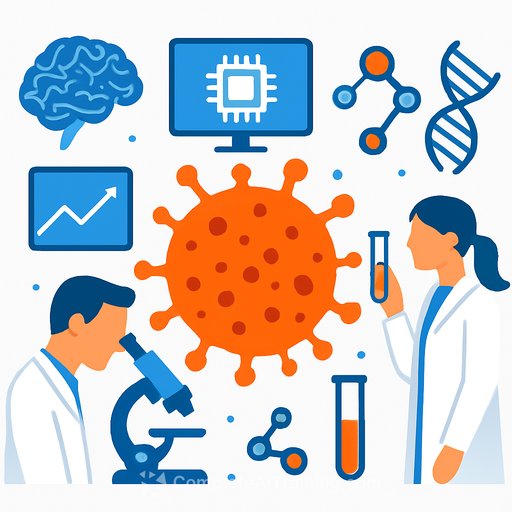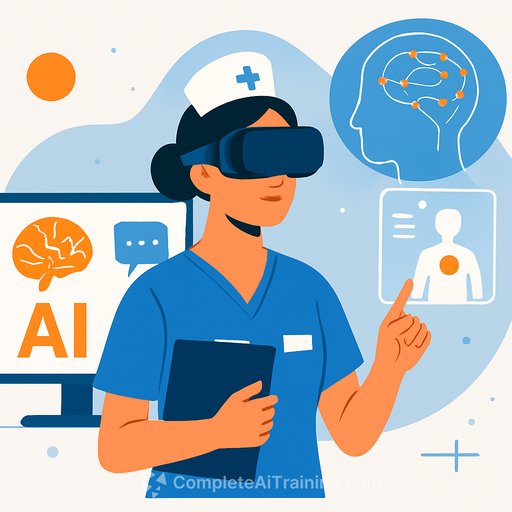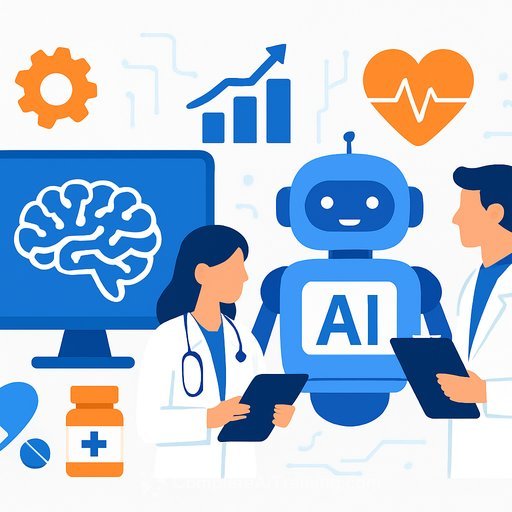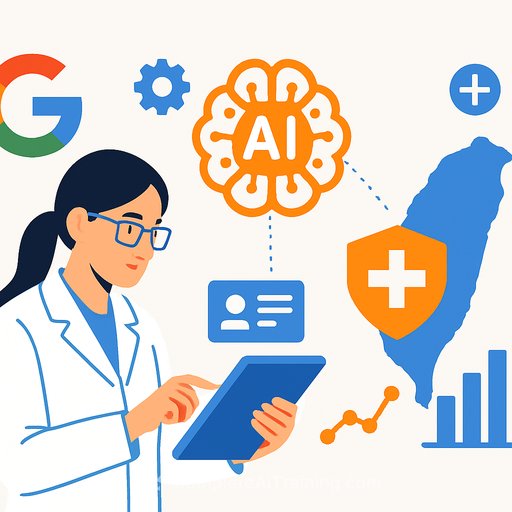GSK and the Fleming Initiative use AI to outpace antimicrobial resistance
One in six lab-confirmed bacterial infections now involves drug-resistant bacteria, according to the latest WHO GLASS report. By 2050, annual deaths linked to antimicrobial resistance (AMR) could reach 8.22 million - a 74.5% increase over 2021.
GSK and the Fleming Initiative are responding with six AI-driven "Grand Challenges," fully funded for three years and starting in early 2026. The alliance connects GSK's antimicrobial expertise with Imperial College London, Imperial College Healthcare NHS Trust, and partners including Agilent Technologies - with around 50 specialist roles primarily in the UK and a £45m commitment to accelerate progress.
What's happening and why it matters
"Together, with scaled datasets, emerging drug modalities and AI-driven models, we will open up new approaches for the discovery of novel antibiotics as well as anticipate and outpace the development of resistance," says Tony Wood, Chief Scientific Officer at GSK. He notes GSK's current portfolio targets several WHO and US CDC priority pathogens and calls for broader collaboration across industry, academia and policy.
Professor Lord Ara Darzi, Head of the Fleming Initiative, adds: "Through our convening power, we have the world-leading expertise, facilities, capacity and vision in place to launch these ambitious Grand Challenges." Eighty years after the Nobel prize for penicillin, the message is clear: coordinated action is overdue.
The six Grand Challenges
- New antibiotics for Gram-negative bacteria: Focused on organisms like E. coli and Klebsiella pneumoniae, which have formidable cell defenses.
- Next-gen antifungals: Starting with Aspergillus infections, where ICU mortality is high and resistance is growing.
- Immune mapping for vaccine insights: Decode immune responses to threats like Staphylococcus aureus to inform vaccine strategies.
- AI-driven pathogen surveillance: Combine disease and environmental data to forecast how resistant threats emerge and spread.
- Clinical trials for antibiotic stewardship: Test prescribing strategies that improve patient outcomes and slow resistance.
- Policy, engagement and research acceleration: Apply international insights to guide government, societal, and preventative AMR actions.
AI at the core
In collaboration with Imperial College London's Drug Discovery Hub and Agilent Technologies, teams will create new datasets on diverse molecules and train models that can predict and design antibiotic candidates - with data shared globally to speed discovery. For antifungal research, AI will help pinpoint weaknesses in Aspergillus and support development of new treatments where current options fall short.
"Warmer climates and disrupted ecosystems are accelerating the spread of drug-resistant infectious diseases," says Claire Lund, Global Vice President Sustainability at GSK. "One of the new research programmes will be using disease surveillance together with environmental data to create AI models that predict how drug-resistant pathogens emerge and spread."
Practical takeaways for healthcare, IT and development teams
- Hospital and clinical leaders: Prepare for stewardship trials by standardizing prescribing pathways, diagnostics-to-therapy timelines, and escalation/de-escalation rules. Track days of therapy, appropriateness rates, and time to effective therapy. Build rapid feedback loops between stewardship teams, ICU, microbiology and pharmacy.
- IT and data teams: Stand up pipelines that integrate EHR, LIS, pharmacy, ICU monitoring and environmental feeds. Favor HL7 FHIR, LOINC and SNOMED CT for interoperability. Implement model governance (versioning, audit trails, calibration checks) and privacy-preserving approaches where needed (e.g., federated learning). Monitor drift and fairness across sites and populations.
- Developers and ML engineers: Use reproducible workflows (containers, CI/CD for ML, feature stores) and high-performance compute for training. Prioritize interpretability (feature attribution, counterfactuals) for clinician trust. Validate beyond AUROC: report PPV/NPV at operational thresholds, calibration, and decision impact in prospective settings.
- Public health and policy teams: Align reporting with WHO GLASS and national frameworks. Plan for data sharing agreements, governance, and clear triggers for action when surveillance raises alerts.
Key risks and safeguards
- Data bias: Over-representation of certain regions or care settings can mislead models. Mitigate with stratified evaluation and site-specific calibration.
- Overuse risk: New agents without strong stewardship can accelerate resistance. Tie deployment to strict protocols and pharmacist-led oversight.
- Model misuse or drift: Require human-in-the-loop review, access controls, and continuous monitoring.
- Security and privacy: Protect sensitive clinical and environmental feeds with encryption, role-based access, and differential privacy where appropriate.
- Reproducibility: Enforce dataset documentation, model cards, and pre-registered analysis plans for trials.
Metrics to track
- Appropriate antibiotic use, days of therapy per 1,000 patient-days, and time to effective therapy.
- MDR infection incidence and resistance rates for E. coli, K. pneumoniae and S. aureus.
- ICU mortality and length of stay for invasive Aspergillus infections.
- Surveillance performance: alert lead time, false alert rate, and outbreak detection sensitivity.
- Model quality: calibration, PPV at chosen thresholds, fairness across subgroups, and clinical decision impact.
- Pipeline progress: number of validated candidates advancing to preclinical/clinical stages and datasets shared with the community.
Collaboration at scale
"Antimicrobial resistance is a global challenge that no single lab or institution can solve alone," says Professor Hugh Brady, President of Imperial College London. The Fleming Initiative brings together scientists, clinicians, policymakers and commercial partners to push shared solutions.
Professor Tim Orchard, Chief Executive of Imperial College Healthcare NHS Trust, adds: "Drug-resistant infections are increasingly difficult to treat and pose a growing risk to patients. We urgently need new solutions and interventions, which will only be achieved if we pool our expertise."
Learn more
Explore the WHO's surveillance program here: WHO GLASS. For pathogen priorities referenced by GSK, see the CDC's overview: Antibiotic Resistance Threats.
If you're upskilling teams building clinical AI systems, see curated resources by role: AI courses by job.
Bottom line
GSK and the Fleming Initiative are pairing scientific depth with AI to find new treatments, forecast threats earlier and improve prescribing. For healthcare, IT and development teams, the opportunity is to wire in data, governance and validation now - so these advances translate into safer care and fewer resistant infections.
Your membership also unlocks:








